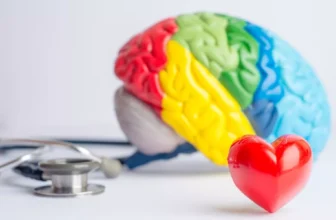
You're going about your day, but something feels off – perhaps you've been struggling to find joy in activities you used to love or noticing a change in your appetite and sleep patterns. These subtle shifts could be more than just a passing phase. Paying attention to these early signs might provide insight into your mental well-being. It's crucial to acknowledge these cues as they could be the start of a deeper discussion on the complexities of mental health.
Behavioral Changes
If you notice significant changes in your daily habits and activities, it could be an early sign of depression.
Pay attention to alterations in your routine, such as sleeping patterns, eating habits, or social interactions. Depression might cause you to experience disturbances in your sleep, leading to insomnia or oversleeping.
You may find yourself losing interest in activities you once enjoyed or feeling fatigued even after minor tasks. Procrastination and difficulty concentrating on simple tasks could also indicate an underlying issue.
Changes in appetite, whether overeating or a loss of appetite, may be red flags. Additionally, you might withdraw from social events or isolate yourself from friends and family.
Irritability, restlessness, or a general feeling of emptiness could further signify the onset of depression.
Emotional Symptoms
Recognize the emotional signs of depression. When you're experiencing depression, you might feel persistently sad, empty, or hopeless. These emotions can be overwhelming and may not have an obvious cause. You might find yourself crying more often or feeling like you're unable to shake off a deep sense of despair.
Additionally, you may lose interest in activities you once enjoyed. Hobbies, socializing, or even spending time with loved ones might no longer bring you the same joy or satisfaction. This can lead to feelings of isolation and loneliness, further exacerbating your emotional state.
Depression can also manifest as irritability or frustration. You may find yourself easily agitated, angry, or even hostile towards others. Small inconveniences that you'd typically brush off might start to greatly affect your mood.
Moreover, feelings of guilt or worthlessness can plague your thoughts. You might blame yourself excessively for perceived failures or shortcomings, even when others reassure you otherwise. These emotions can significantly impact your self-esteem and sense of self-worth.
Physical Signs
When experiencing depression, pay attention to your body for physical signs that may include changes in appetite or sleep patterns. You might notice a significant decrease or increase in your appetite, leading to weight loss or gain. Some individuals may lose interest in food altogether, while others might turn to overeating as a way to cope with their emotions.
Similarly, disruptions in sleep patterns could manifest as insomnia, where you struggle to fall or stay asleep, or hypersomnia, where you feel excessively sleepy and may oversleep.
Moreover, physical symptoms of depression can also include persistent fatigue and low energy levels. You might find yourself feeling constantly tired, even after a full night's rest, making it challenging to engage in daily activities. Headaches, muscle aches, and digestive issues like stomach pain or changes in bowel habits are also common physical manifestations of depression.
If you notice these signs in conjunction with other emotional symptoms, it may be beneficial to seek support from a healthcare professional.
Cognitive Indicators
Pay attention to your thoughts and mental processes as they can serve as important indicators of depression, shifting focus to cognitive aspects. When experiencing depression, you may notice persistent feelings of sadness, hopelessness, or emptiness that cloud your thinking.
Negative self-talk, self-criticism, and feelings of worthlessness can become recurrent patterns in your mind. Difficulty concentrating, making decisions, or remembering things may also arise. Cognitive indicators of depression often manifest as a distorted perception of reality, where you might interpret situations more negatively than they truly are.
You may find yourself withdrawing from activities you once enjoyed due to a lack of interest or pleasure. Additionally, thoughts of death or suicide could start infiltrating your mind. If you catch yourself experiencing these cognitive indicators frequently and intensely, it may be a sign to seek help and support.




